Canada’s Trudeau defends use of ‘Emergencies Act’ to quell trucker protests
Canada’s Prime Minister Justin Trudeau has steadfastly defended his government’s move to invoke the Emergencies Act earlier this year for the first time in the law’s 34-year history to end anti-government protests that paralyzed the capital.
Trudeau testified at the Public Order Emergency Commission on Friday to wrap up six weeks of hearings on the rarely used powers, invoked in February to end weeks of protests led by truckers that brought Ottawa to a standstill and disrupted trade.
He said invoking the Emergencies Act "was the right thing to do. And we did it."
The self-styled "Freedom Convoy" of truckers rolled into Ottawa on January 29 from across the country to protest against public health measures including vaccine mandates. They shut down the capital and blocked some border crossings for weeks in January and February.
Trudeau eventually invoked the act, authorizing police – and, theoretically, the military to crack down on protesters, including by seizing trucks, bank account shut-downs, and suspending insurance. At least 200 people were also arrested.
The Emergencies Act stipulates that a national emergency is an urgent and critical situation of a temporary nature that "cannot be effectively dealt with under any other law of Canada."
Trudeau said on Friday that using emergency powers was unavoidable, claiming it was not possible to negotiate with the protesters. He claimed the protesters had rammed vehicles into police cruisers and used children as shields.
“First of all, what if the worst had happened in those following days? What if someone had gotten hurt?” he asked.
“What if, when I had an opportunity to do something, I had waited and we had the unthinkable happen?”
He said police were concerned they might be hoarding weapons while Canada's spy agency warned of "the presence of people promoting ideologically-motivated violent extremism."
“We were seeing things escalate,” he told the commission, adding that advice and “my own inclination was that... we needed to do something to keep Canadians safe.”
The prime minister's critics said his use of those powers was excessive.
Canadian Security Intelligence Service (CSIS) Director David Vigneault has testified he does not believe the protest met the definition of a national security threat under the CSIS Act.
During her examination, commission lawyer Shantona Chaudhury also suggested to Trudeau that the protests did "not constitute a threat to the security of Canada as defined in the CSIS Act." Trudeau responded, "As defined for the CSIS Act." He said that cabinet — not the CSIS — decides whether to invoke the Emergencies Act.
"Those words in the CSIS Act are used for the purpose of CSIS determining that they have authority to act against an individual a group or a specific plot ... for example."
Convoy organizers, however, said their actions were legitimate pushback against the government's “evil” policies.
“We weren't there to disrupt the city residents,” trucker Brigitte Belton told the inquiry. "We were there to be heard."
Azerbaijan Airlines flight diverted amid fog, Ukrainian drone alert: Russia
VIDEO | Iran honors female trailblazers during Women's Week
Missile fired from Yemen triggers sirens in Israeli-occupied lands
VIDEO | S Korean legal battles rage as presidential impeachment trial begins
VIDEO | Over 80% of mosques in Gaza destroyed by Israeli regime
VIDEO | Jordanians take to streets of Amman to support Resistance
VIDEO | Protests erupt in Pakistan over Parachinar crisis
US and UK launch new airstrikes on Yemeni capital


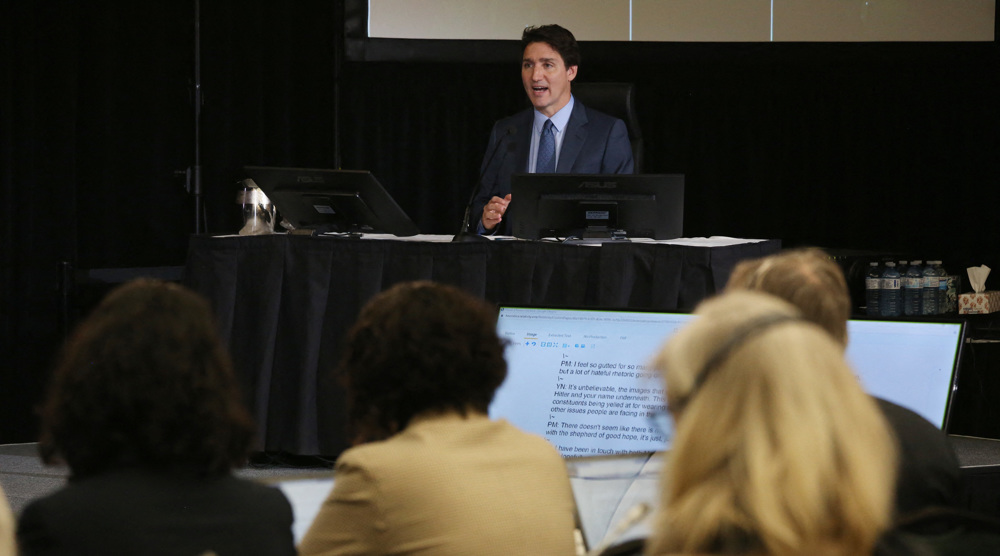
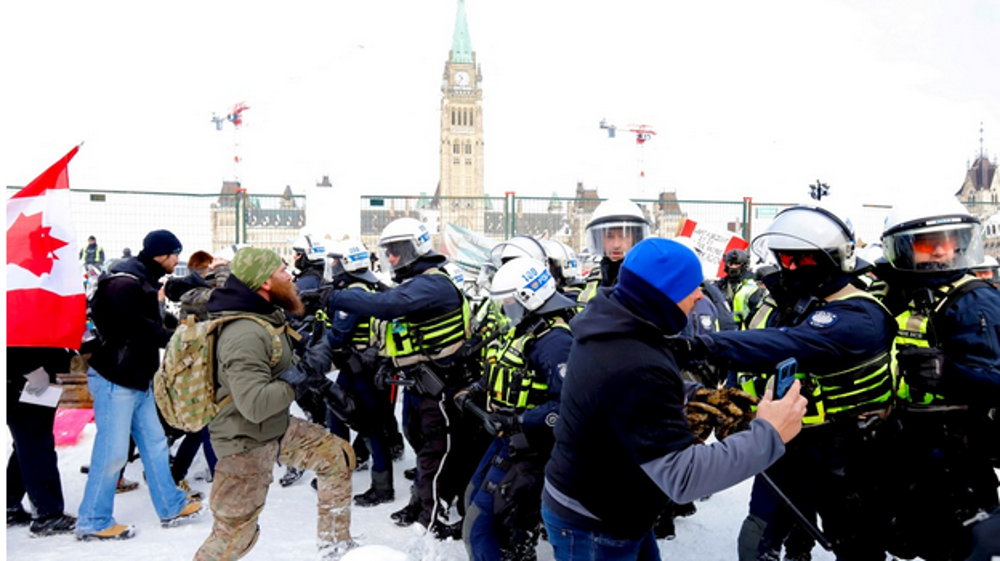
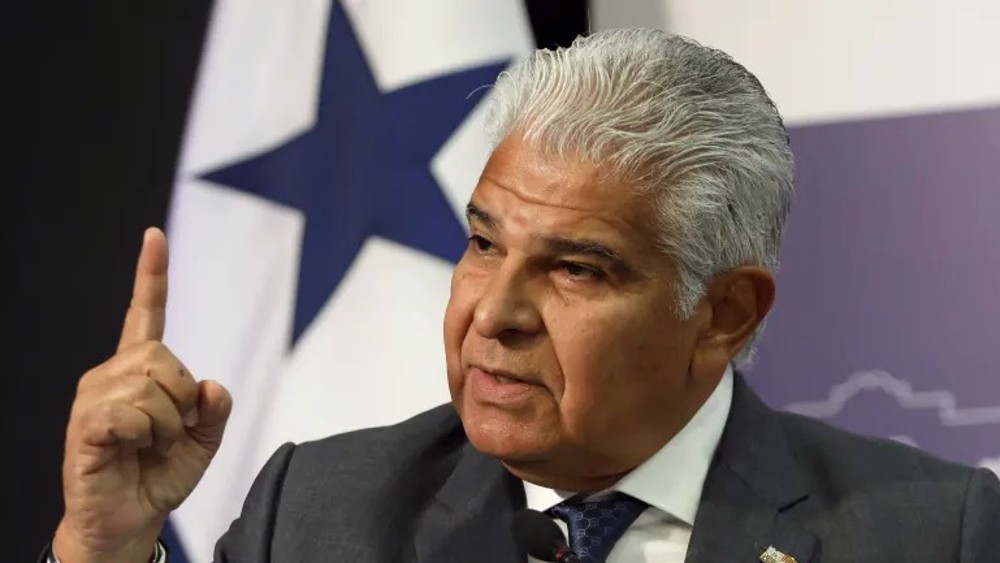
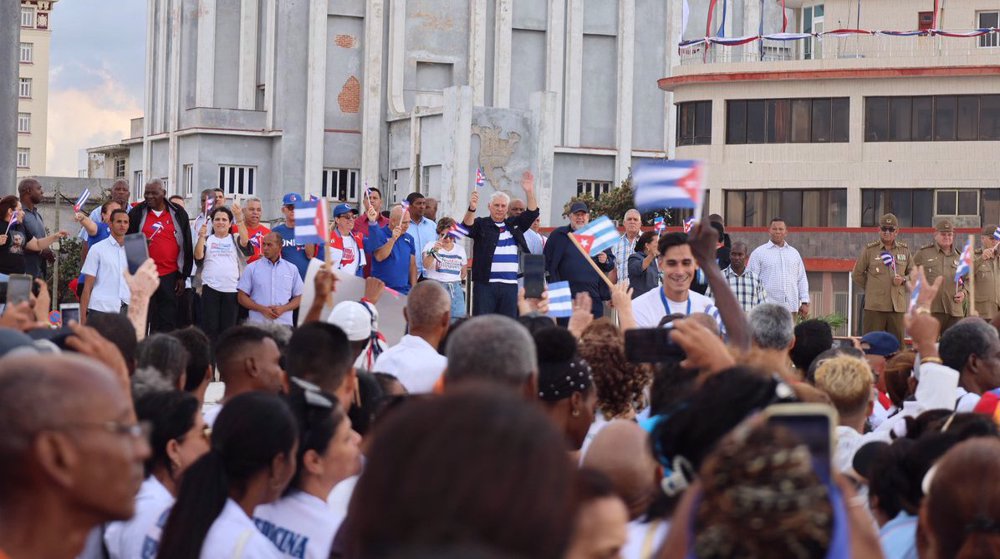
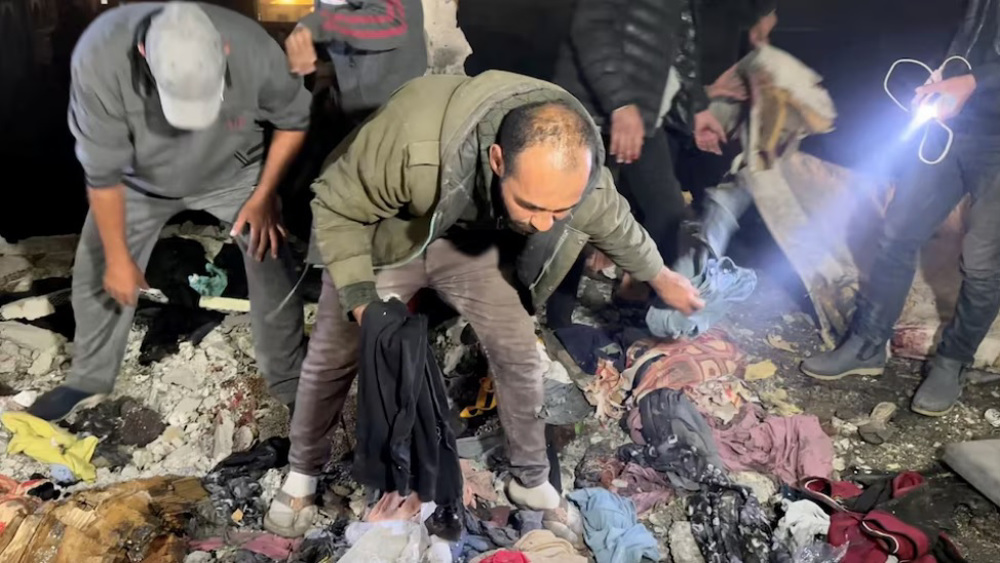



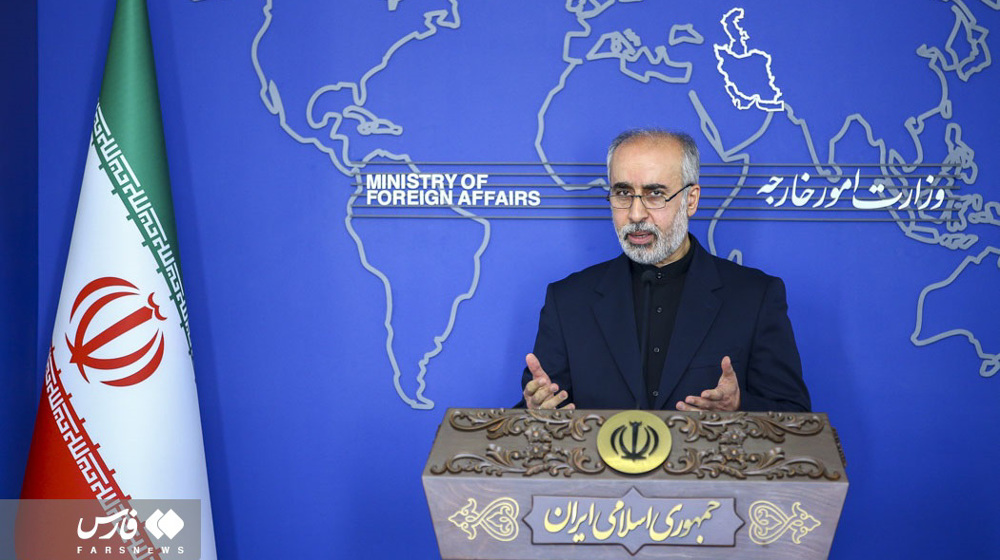
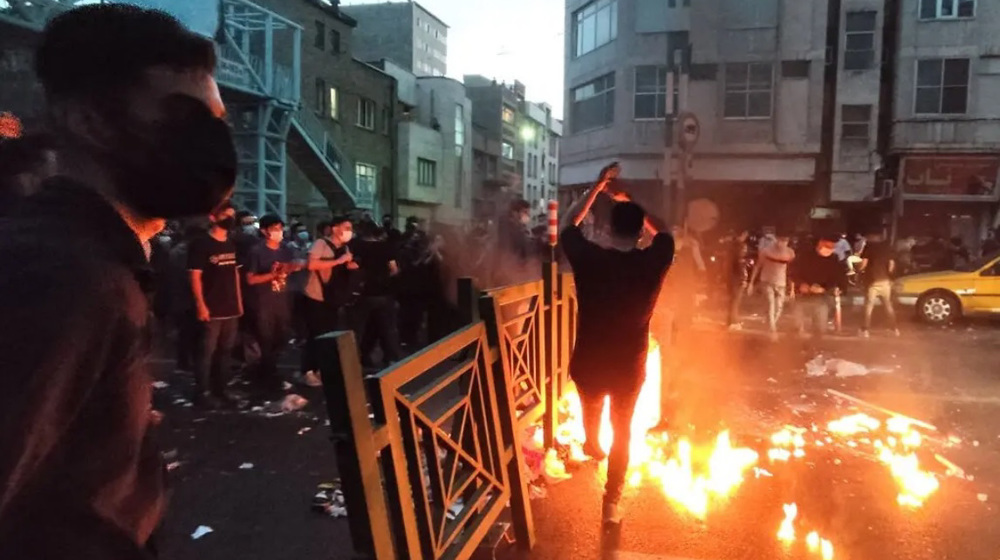

 This makes it easy to access the Press TV website
This makes it easy to access the Press TV website